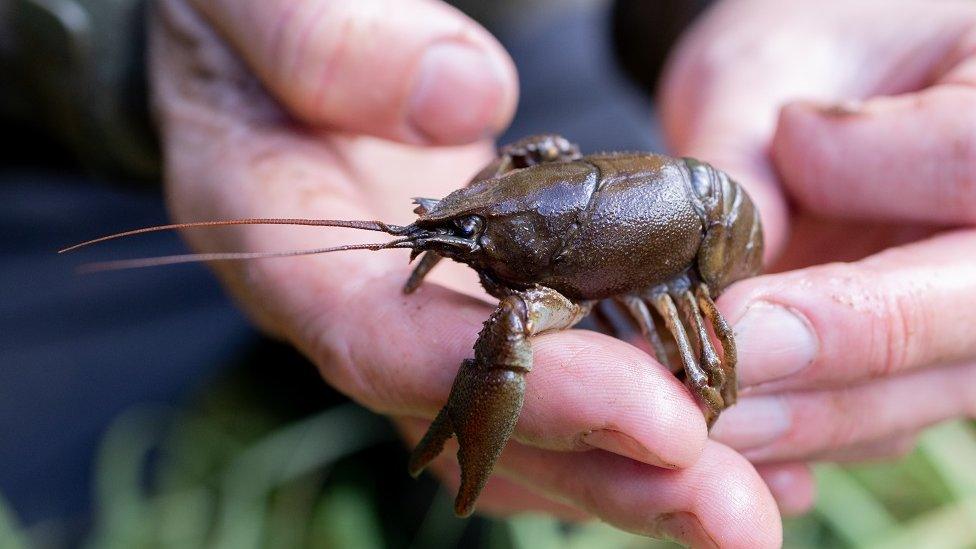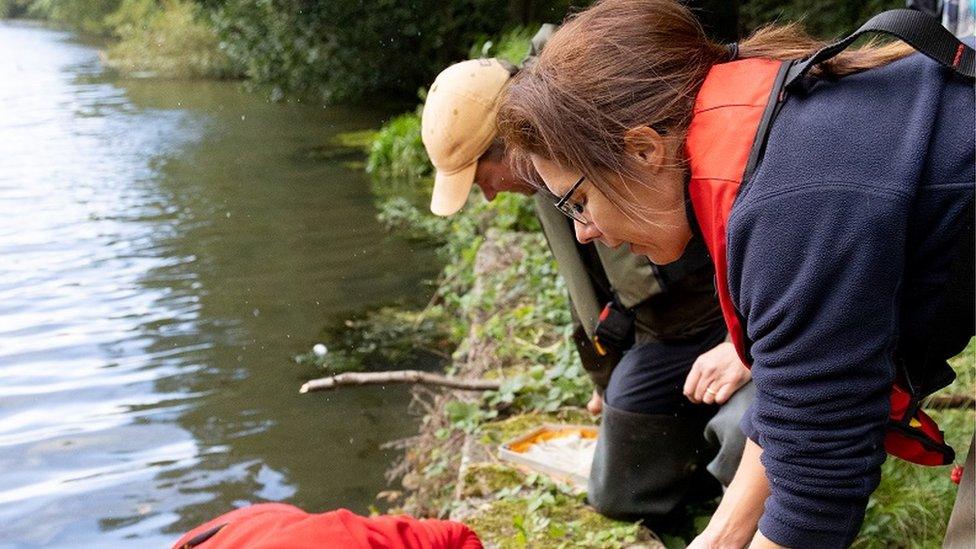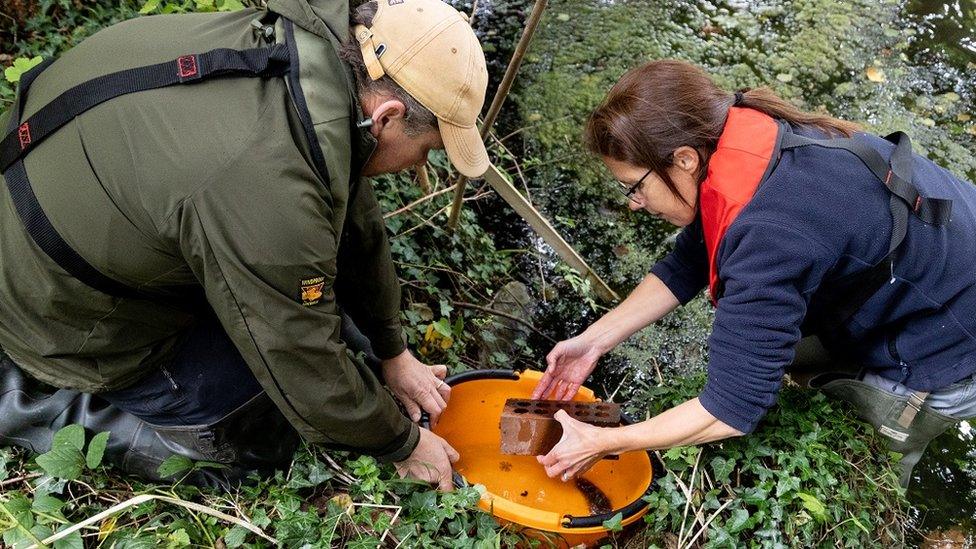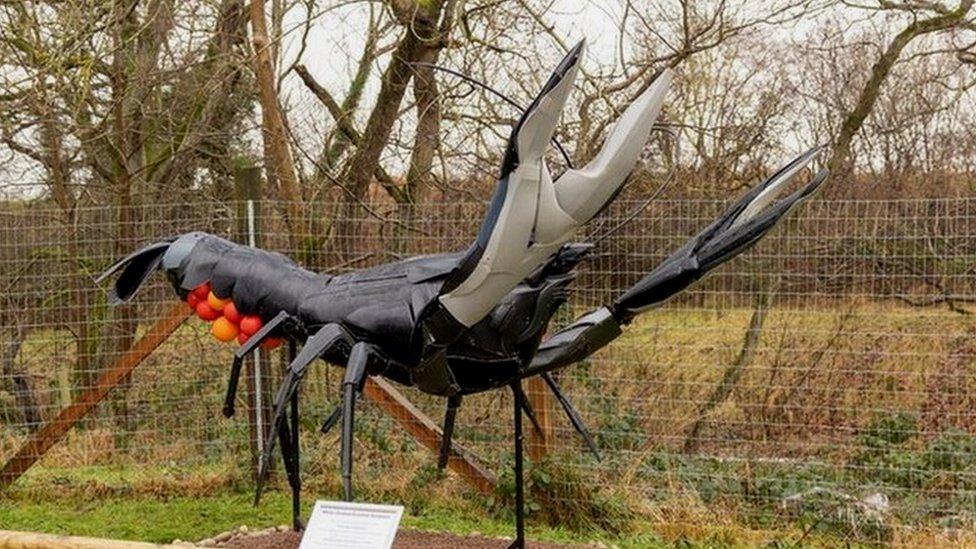Derbyshire crayfish relocated in bid to protect rare species
- Published

The species are under threat from the non-native signal crayfish
Hundreds of white-clawed crayfish have been relocated as part of a project to protect the endangered species.
Derbyshire Wildlife Trust has led a scheme to move the native crayfish from National Trust site Kedleston Hall.
The species are under threat from non-native signal crayfish which are living downstream at Markeaton Park.
They have been transferred to a secret location, owned by the Woodland Trust, where it is hoped their numbers can grow.

They have now been transferred to a secret location
Kath Stapley, project lead and living rivers officer at Derbyshire Wildlife Trust, said: "Despite ongoing conservation efforts, sadly it is only a matter of time before the signal crayfish downstream make their way into the lake systems at Kedleston and eventually wipe out this protected species in these lakes.
"The signal crayfish also threatens other species and will significantly reduce the biodiversity here.
"This is the first translocation we have undertaken here, but we hope to translocate more white-clawed crayfish from Kedleston each year, as long as it is safe to do so."
Teams from The National Trust, The Woodland Trust and the wildlife trusts from Staffordshire and Derbyshire used artificial refuge traps at strategic locations through the lakes system to catch the animals.

The team said they hoped the crayfish would thrive
They performed health checks on the crayfish at Kedleston to ensure they were ready for the move, before transporting them to a secret location where it is hoped they will thrive.
James Jesson, who is managing the site for the Woodland Trust where the crayfish have been released, added: "We are delighted that we are able to work with our conservation partners to provide the site for the relocation of such a special yet threatened species.
"We hope these crayfish go on to thrive in this area which we will continue to work hard to protect into the future."

Follow BBC East Midlands on Facebook, external, Twitter, external, or Instagram, external. Send your story ideas to eastmidsnews@bbc.co.uk, external.
Related topics
- Published31 December 2021
